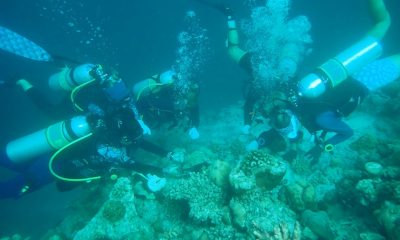Featured
Noo Raajje releases 2020 Maldives Coral Reef Assessment Report: Findings include recovering coral populations, reefs still facing challenges

The Noo Raajje scientists write that the apparent recovery in the amount of coral may be due in part to the high levels of recruitment recorded at the sites surveyed (an average of over 14 individual new corals, or ‘recruits’, per square meter), and was likely helped by high numbers of herbivore fish found.
The assessment is based on two expeditions of the northern and central atolls, carried out in January and February 2020 by scientists from the Waitt Institute, Scripps Institute of Oceanography, University of Western Australia, Maldives Marine Research Institute, and their partners from Small Island Research Group. The survey efforts were further supported by the Environmental Protection Agency, Oceano Azul Foundation, IUCN Maldives, Maldives Coral Institute, Centre de Recherches Insulaires et Observatoire de l’Environnement, Vava’u Environmental Protection Association, University of California Santa Barbara, NEKTON, and University of Hawai’i. The scientists surveyed 127 reef sites across 15 atolls.
Sites were classified as inhabited, resort, or uninhabited, and were surveyed across multiple indicators that can help scientists understand the overall health of a reef and its many important species. The indicators surveyed were;
- reef fish, reef shark, and large-bodied fish abundance, diversity, and biomass;
- species composition of bottom (benthic) communities;
- the abundance of juvenile corals;
- reef rugosity (shape and area of the reef that provides habitat and resilience);
- the abundance and diversity of benthic macroinvertebrates (clams, sea cucumbers, and others);
- and water quality.
The results of the assessment suggest that overall, Maldivian reefs have the capacity to recover following warming events, but local stressors may impact reef health at the local scale.
Although the results of the study are a cause for optimism, the scientists point out that prior to the 2016 bleaching, Maldives coral coverage was some 40%, suggesting that the recovery of the country’s coral reefs has a long way to go.
The fish survey data showed a high density of small-bodied plankton eating fish, , a moderate density of large herbivorous reef fish, like parrotfish, but only low densities of top predators and sharks. Large top predators like sharks and rays can indicate very high reef health, as well as bring in value to communities through tourism.
In March of 2021, the Noo Raajje Program completed a survey of the southern Maldives to finish the archipelago-wide assessment. A separate report will be complied based on that expedition’s results.
Noo Raajje is a program led by the Government of the Maldives, including the President’s Office and the Ministry of Fisheries, Marine Resources and Agriculture, and in partnership with government agencies including the Ministry of Environment, Climate Change and Technology, the Ministry of National Planning, Housing and Infrastructure, the Ministry of Economic Development,the Ministry of Tourism, the Environment Protection Agency, Local Government Authority, the Maldives Marine Research Institute, and others.
To read the assessment in full, click here: www.nooraajje.org/coral-reef-assessment
International support comes from the Blue Prosperity Coalition, including the Waitt Institute, the Waitt Foundation, National Geographic Pristine Seas, Scripps Institution of Oceanography, SeaSketch, Environmental Markets Solutions Lab at UC Santa Barbara, UCLA Institute of the Environment and Sustainability, and others.
Cooking
Patina Maldives hosts Chef Shannon Bennett for exclusive April residency

From 1 to 5 April 2026, Patina Maldives, Fari Islands will host Shannon Bennett, one of Australia’s most recognised culinary figures and the creative force behind Belongil. The residency brings together a chef known for shaping dining as an emotional and reflective experience with a destination defined by perspective, creativity and purpose.
Bennett’s career extends beyond traditional notions of cooking. Through projects such as Vue de Monde and Belongil, he has explored dining as a medium for memory, connection and emotion, placing emphasis on experience rather than consumption. His approach centres on creating moments that remain with guests long after the meal has ended.
At Patina Maldives, the residency represents a convergence of shared values. Over five nights, guests are invited to take part in a limited series of dining experiences shaped by intention, curiosity and a sense of place. Rather than recreating Belongil in another setting, the programme evolves its philosophy, drawing inspiration from the natural rhythm and clarity of the Maldivian environment.
Commenting on the collaboration, Bennett said Belongil was conceived as more than a place to eat, but as a space for ideas, connection and lasting moments. He noted that Patina Maldives reflects a similar sense of purpose, adding that bringing his work into the island setting offered an opportunity to create experiences that feel grounded, honest and meaningful.
Patina Maldives continues to develop its identity by providing a platform for global creative voices to shape new conversations and perspectives. The residency with Bennett aligns with this approach, positioning cuisine as one element within a broader cultural and experiential narrative.
Tom Bray, Director of Lifestyle at Patina Maldives, said the resort exists to bring people closer to ideas, creativity and self-discovery. He added that welcoming Bennett reflects this philosophy, describing the residency as an experience designed to shift perspective rather than focus solely on gastronomy.
The residency is presented as an experience defined by intention rather than spectacle. Taking place over five nights on a single island, it brings together Patina Maldives and one of the culinary world’s most reflective minds for a programme shaped by presence, purpose and a sense of moment that cannot be replicated in the same way again.
Featured
You & Me Maldives unveils curated Premium All Inclusive programme
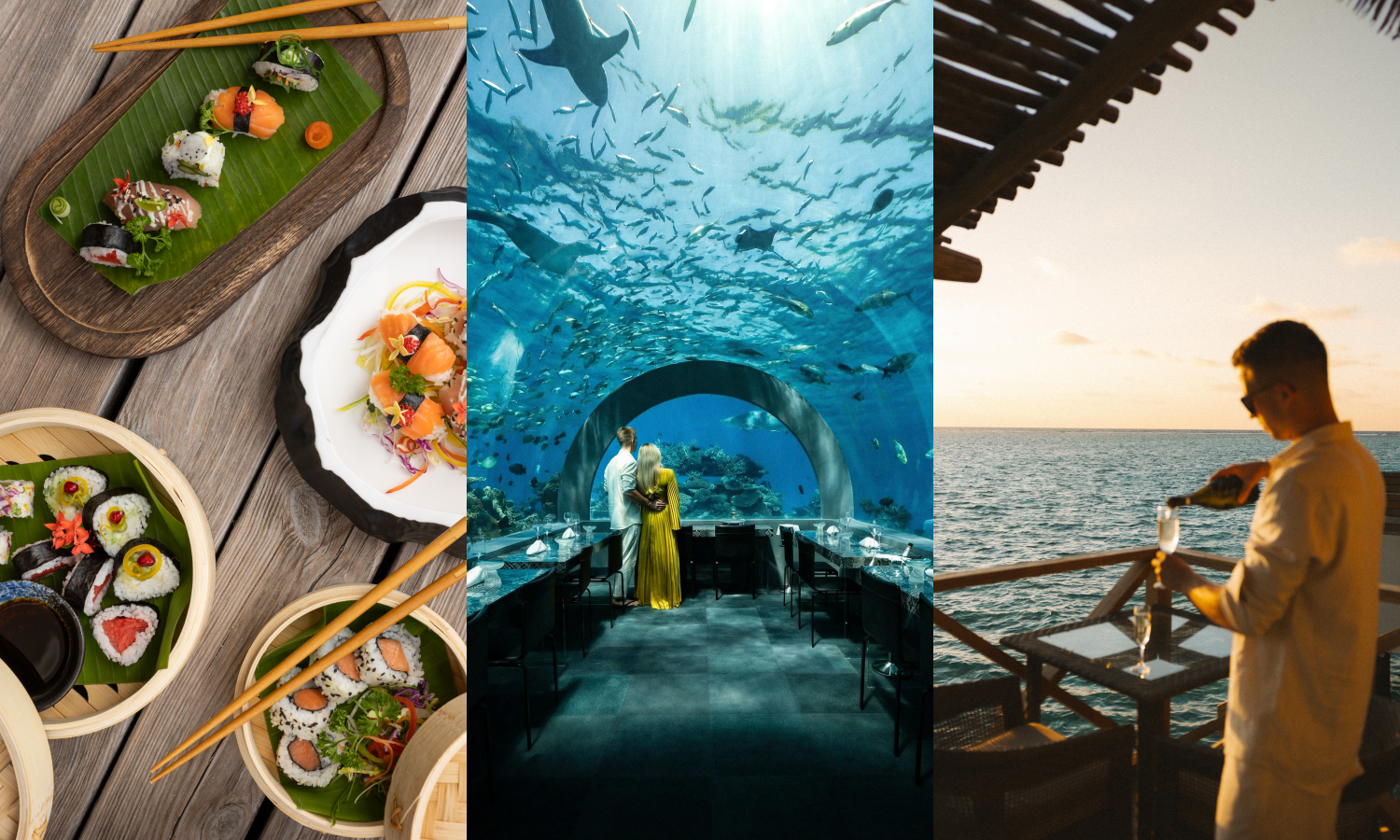
You & Me Maldives, the adults-only luxury retreat under The Cocoon Collection, has announced the launch of its new Premium All Inclusive experience, aimed at enhancing island stays through a more seamless and comprehensive offering in the Indian Ocean.
The Premium All Inclusive experience is designed to begin from the point of arrival. Guests receive complimentary access to The Cocoon Collection Lounge at the seaplane terminal at Velana International Airport, where services are provided to ensure a smooth transition before the journey to the resort.
On arrival at the island, guests are welcomed in their villas with a chilled bottle of sparkling wine and a selection of canapés. The Premium All Inclusive plan includes unlimited premium beverages by the glass, featuring a curated range of wines, signature cocktails, top-shelf spirits, international beers and non-alcoholic options. The in-villa minibar is replenished daily with soft drinks, international beers, red and white wines, as well as assorted snacks. For stays of five nights or more, guests also receive two bottles of premium liquor from a selected list, provided once during the stay.
The experience further includes a range of activities. Guests staying a minimum of three nights are offered one sunset cruise and one snorkelling excursion per stay, while those staying seven nights or more are entitled to a catamaran cruise. Unlimited use of snorkelling equipment and non-motorised water sports, including canoeing, kayaking and paddle boarding, is also included, subject to weather conditions.
Dining forms a central part of the Premium All Inclusive concept. Guests can enjoy three themed dining evenings, including a seafood barbecue under the stars featuring prawns, lobster and oysters. For stays of five nights or more, guests may also take part in a complimentary group cooking class, with a choice between ethnic or Italian cuisine, led by the resort’s culinary team.
Wellness offerings are also incorporated into the programme, with guests able to participate in up to three complimentary sunrise yoga sessions per stay, subject to availability.
The introduction of the Premium All Inclusive experience reflects the resort’s focus on personalised service and carefully curated stays. The offering is positioned to appeal to couples seeking relaxation, romance or activity-led experiences within an adults-only island setting.
Featured
Eid celebrations at SO/ Maldives blend Arabic tradition and Maldivian culture

SO/ Maldives is inviting global travellers this season to reimagine Eid not merely as a holiday, but as an immersive island escape. Located just 15 minutes by speedboat from Malé, the fashion-forward private island retreat sets the stage for a celebration where cultural heritage, contemporary luxury and tropical glamour come together.
At the centre of the festivities is an authentic culinary experience at Hadaba, the resort’s award-winning Arabic restaurant. Guests are offered Levantine flavours, artisanal mezze and traditional recipes presented with a modern approach, creating a setting for shared dining and celebration. As part of the resort’s dine-around concept, Hadaba can be included in a wider culinary journey across the island, allowing guests to experience Arabic cuisine alongside the resort’s other dining venues.
As evening falls, celebrations move to Lazuli Beach Club, where shisha rituals and Arabic-inspired refreshments are served in a beachfront setting. Traditional performances are complemented by Maldivian Boduberu drumming and fire dance displays, creating a cultural programme designed to appeal to international travellers seeking meaningful experiences.
Across the island, Eid is marked through a series of curated activities aimed at encouraging connection and creativity. Cultural workshops, including palm-leaf artistry and henna sessions, offer opportunities to explore heritage, while younger guests are engaged through themed crafts, interactive games and sweet treat decorating. The overall atmosphere remains celebratory while maintaining a relaxed pace that reflects the resort’s character.
Beyond the festive programme, the resort positions the long weekend as a fully immersive island retreat. Guests stay in beach and overwater villas featuring private pools and ocean views, with interiors inspired by high fashion. Time is spent between spa treatments, lagoon activities, beach club experiences and sunset dining, balancing celebration with seclusion.
To mark the season, the resort has introduced two limited-time stay offers. The One Night on Us offer provides savings of 33 per cent on stays of three nights or more, along with daily breakfast, complimentary transfers and spa privileges. The Soo Summer package offers preferential rates combined with spa experiences, curated dining inclusions and additional benefits for water villa stays.
Welcoming travellers from Europe, Asia, the Middle East and beyond, the resort presents Eid as a global celebration where Arabic traditions, Maldivian culture and contemporary design are brought together. This season, guests are invited to exchange routine for island surroundings and experience Eid through a redefined island perspective.
-
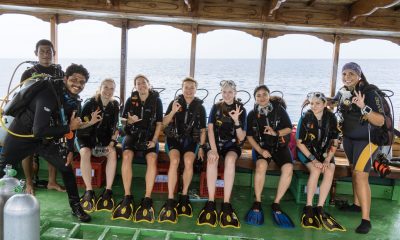
 Action1 week ago
Action1 week agoAtmosphere Foundation launches annual dive training scholarship for Maldivians
-

 Entertainment1 week ago
Entertainment1 week ago‘One festival, every sense’: Fari Islands Festival announces August 2026 return
-
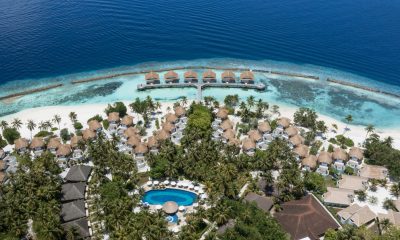
 Awards1 week ago
Awards1 week agoBandos Maldives earns Booking.com Traveller Review Award 2026
-
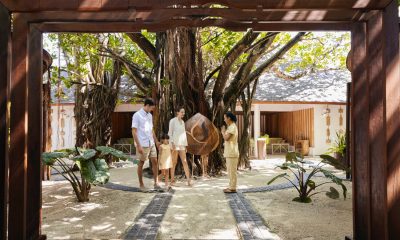
 Featured1 week ago
Featured1 week agoAncient banyan tree anchors spiritual experiences at Machchafushi Island Resort
-
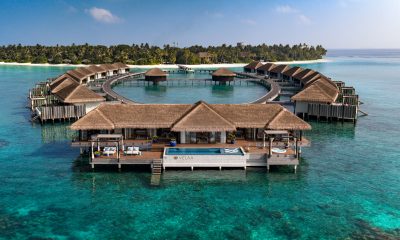
 News7 days ago
News7 days agoRefined overwater vision: Velaa Private Island’s upgraded Ocean Pool House
-
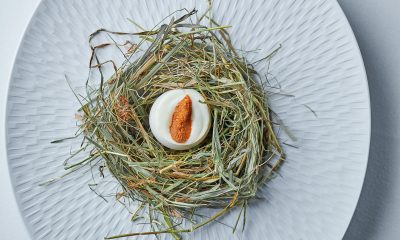
 Cooking6 days ago
Cooking6 days agoA spring of flavours: Nowruz dining series at JW Marriott Maldives Resort & Spa
-
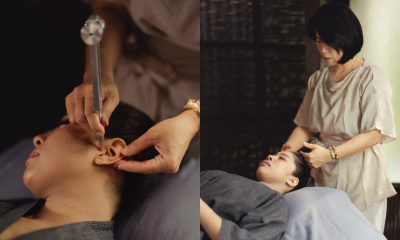
 Featured1 week ago
Featured1 week agoYoko Kawaguchi to lead holistic wellness residency at Vakkaru Maldives
-
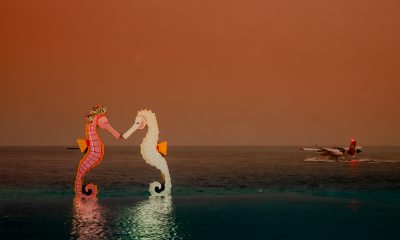
 Love1 week ago
Love1 week agoFushifaru Maldives combines romance and lunar new year traditions in guest programme



